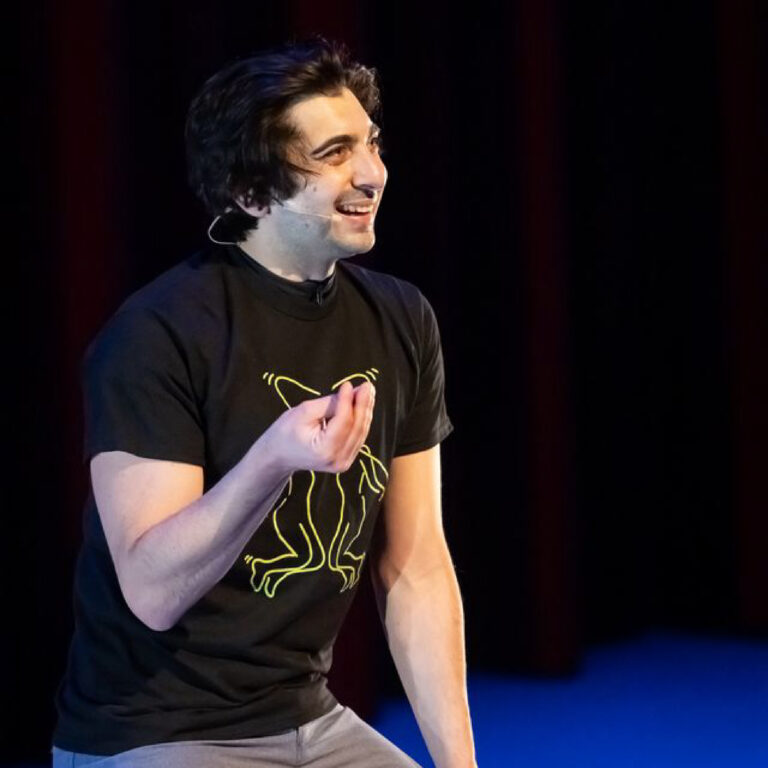 Photos: Derek Fowles
Photos: Derek Fowles
 Photos: Derek Fowles
Photos: Derek Fowles
Alexander Davis is a Boston-based homosexual interested in subverting expectations, heightening the pedestrian, and normalizing queer narratives through fiber and performance. Alex has worked with organizations across Boston including Ryan Landry’s Gold Dust Orphans, Boston Lyric Opera, Boston Children’s Chorus, Global Arts Live, Improv Asylum/Laugh Boston, and Urbanity Dance, where he served as the Interim Artistic Director for the 2019-2020 Season. As a choreographer and fiber artist Alex has received grant and residency support from The Studios at Mass MoCA, The Boston Foundation, NEFA, The City of Boston, and The Theatre Offensive. Alex assisted choreographer Monica Bill Barnes on Greta Gerwig’s Academy Award winning 2019 film Little Women. In 2019 Alex was named City of Boston Artist Fellow. In 2023 Alex earned his MFA from Smith College, where he was a Teaching Fellow from 2021 -2023.
In 2018 Alex and collaborator Joy Davis (The Davis Sisters) were named Bessie Schonberg (Boston) Fellows at The Yard where they developed their collaborative performance/design work Junk Drawer, which toured New England in 2019-2020. They have received Creative Residencies from Museum of Fine Arts Boston, Studio@550, Boston Center for the Arts, Chelsea Theatre Works, Bates Dance Festival, Wesleyan Center for the Arts and Goodyear Arts in Charlotte NC.
Alex’s fiber art series Federation of Athletic Gentleman (F.A.G.) was recently exhibited at Childs Gallery, Boston in the exhibition Interlaced: The Fabric of Art, in which he was also the lead curator. He has contributed to the curation of multiple Childs Gallery exhibitions including Gaze: A History of Male Physique Photography, Closet to Quarantine: Queer Art Then and Now, Chuck: The Photography of George Platt Lynes, and John MacConnell: Fragments.
In the year 2024 AD, Alexander Davis auditioned to dance for a very established, very well funded, very awarded choreographer. After the audition Alex was indeed invited to join the process on one condition; would he be “willing to lose weight in order to fit the gay aesthetic of the work.” Alexander Davis did not take the job, but he is also not against utilizing this experience as a launching point for his next dance work.
Gay Aesthetic: Based on a True Story is an evening length dance play that explores the history of toxic white gay culture, queer survival tools, and discrimination from within the queer community. Utilizing source materials such as Hal Fischer’s 1970’s research on Gay Semiotics, the queer history of hanky codes, vintage physique photography, and the research of Alex Espinoza, Adam Zmith, Nick Maus, Elspeth Brown, and others this dance play is part lecture, part demonstration, and part unearned and over dramatic existential crisis.